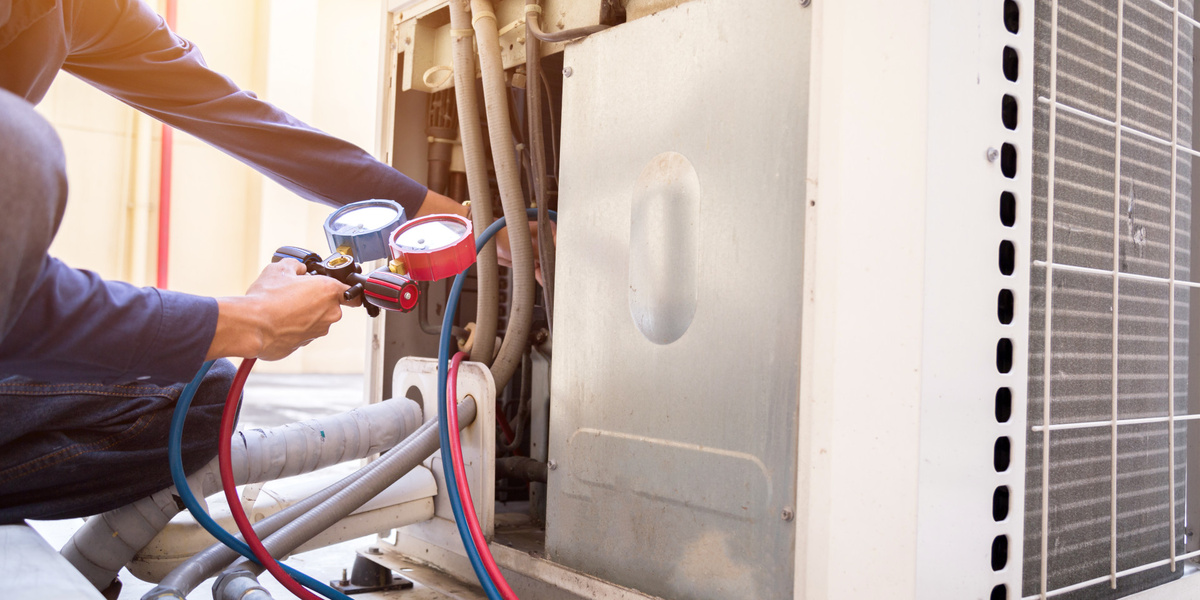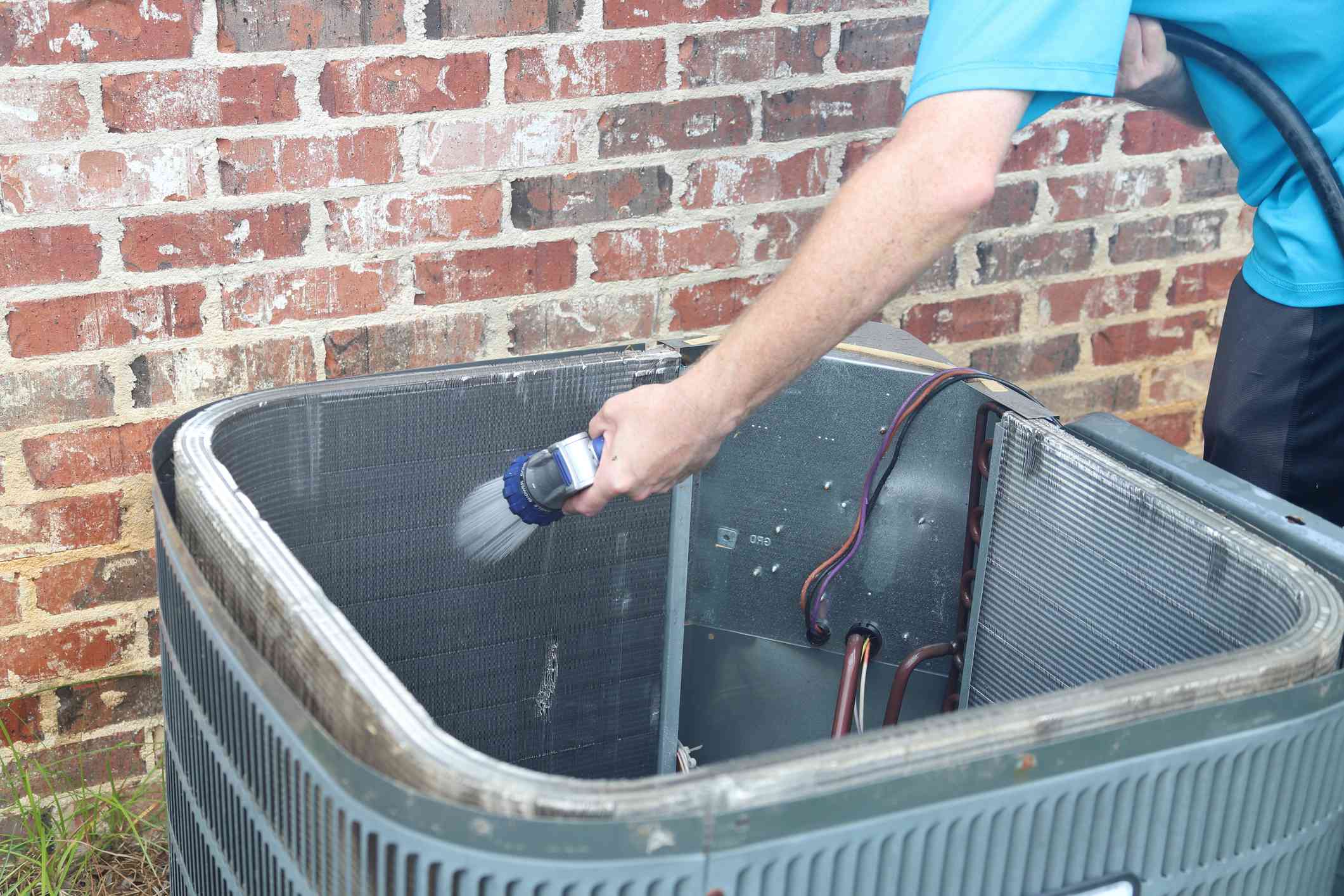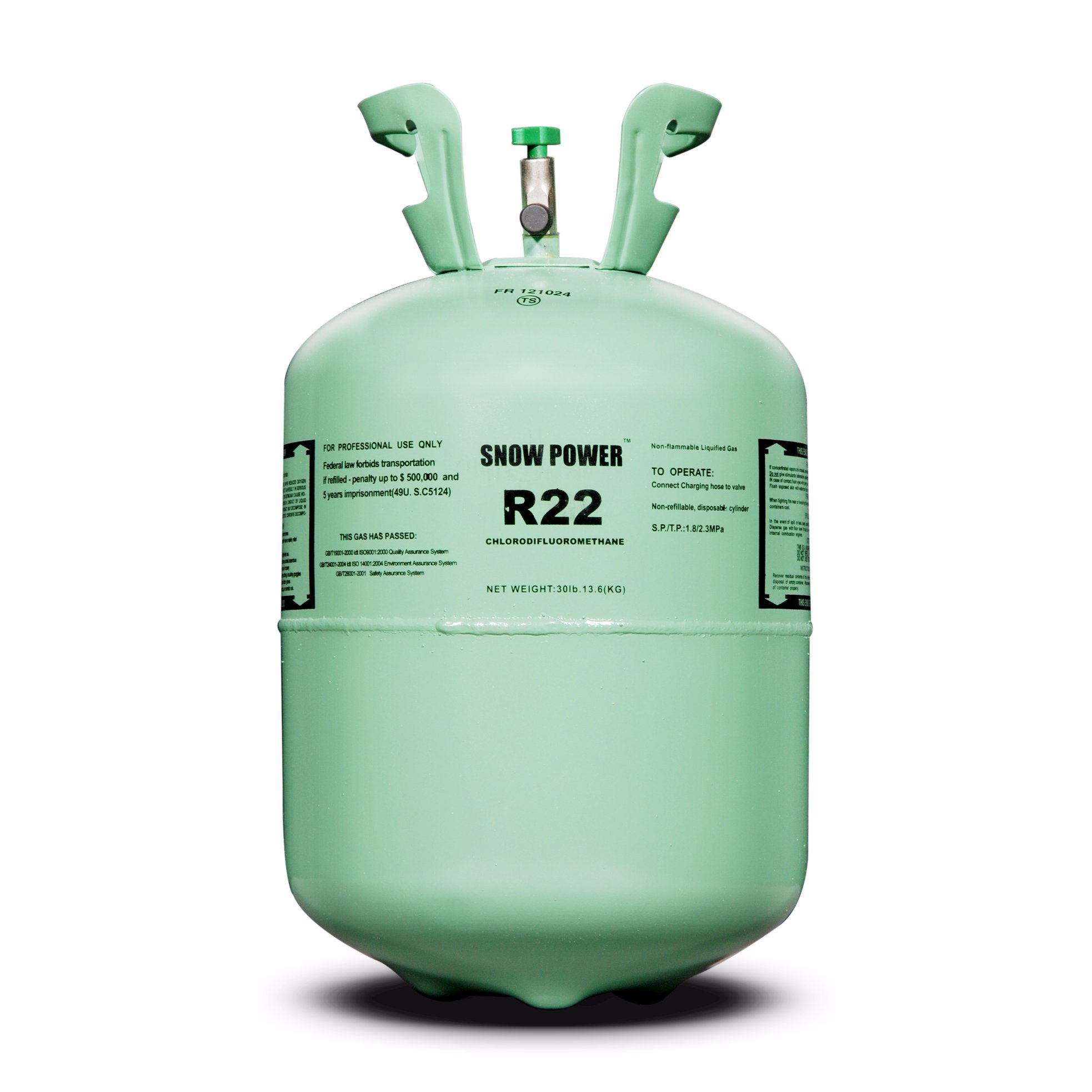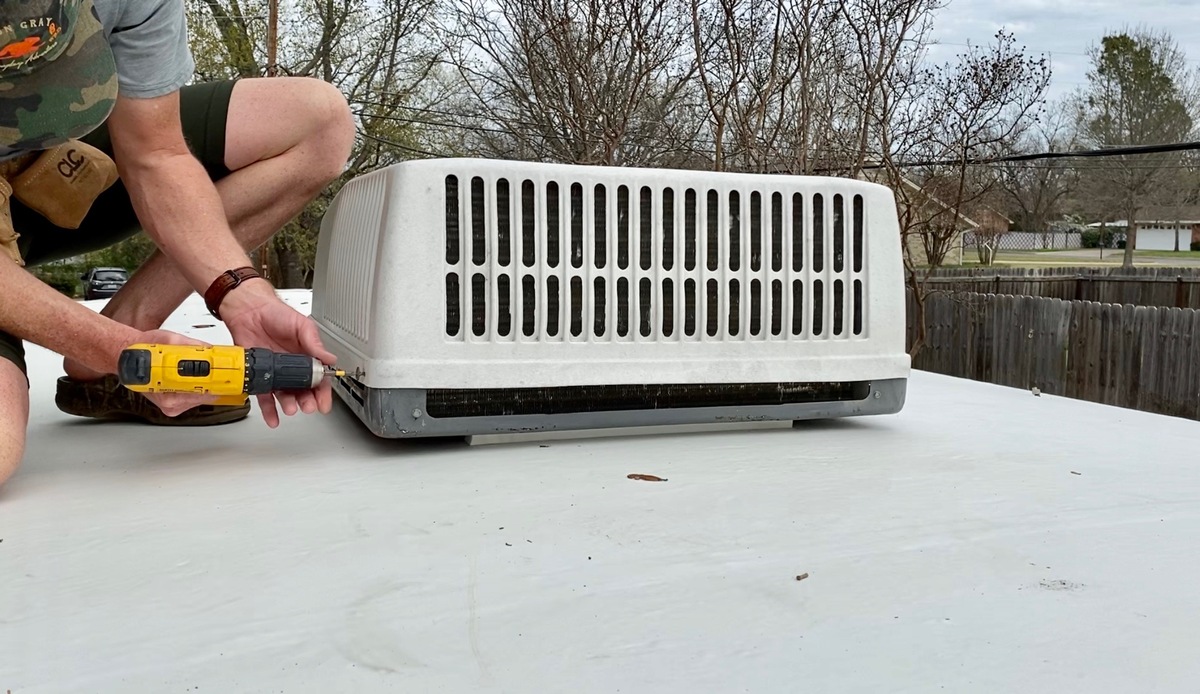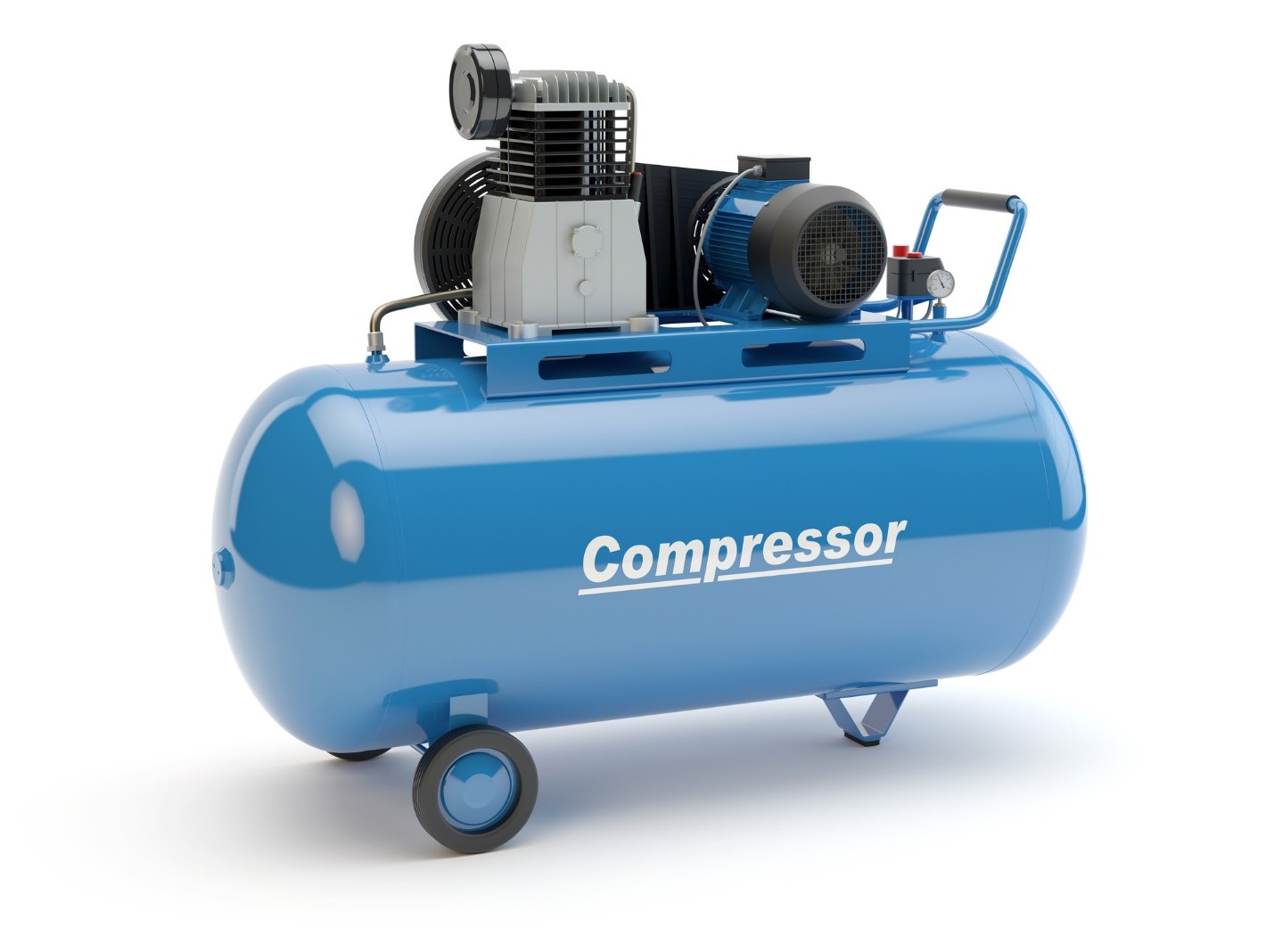Home>Home Maintenance>How To Get Air Conditioning Certification


Home Maintenance
How To Get Air Conditioning Certification
Modified: March 6, 2024
Learn how to get air conditioning certification and enhance your home maintenance skills. Gain the knowledge and expertise needed for efficient AC installations and repairs.
(Many of the links in this article redirect to a specific reviewed product. Your purchase of these products through affiliate links helps to generate commission for Storables.com, at no extra cost. Learn more)
Introduction
Welcome to the world of air conditioning! As the summer heat becomes increasingly unbearable, the demand for skilled professionals in the air conditioning industry continues to rise. However, with the ever-evolving technology and complex systems, it’s crucial to stay ahead of the game. One way to do that is by obtaining air conditioning certification.
Air conditioning certification is a recognized credential that demonstrates your expertise in installing, maintaining, and repairing air conditioning systems. It serves as a testament to your proficiency in the field and gives you a competitive edge in the job market. Whether you’re a seasoned HVAC technician looking to expand your knowledge or a newcomer seeking to break into the industry, air conditioning certification can open doors to exciting career opportunities.
In this comprehensive guide, we will explore the benefits of air conditioning certification, the requirements to obtain it, how to choose the right certification program, steps to obtain certification, exam preparation tips, renewing the certification, and the career opportunities that await those who hold this esteemed credential.
So, whether you’re passionate about keeping homes and businesses cool, or you simply want to learn more about air conditioning systems, let’s dive in and discover how to get air conditioning certification!
Key Takeaways:
- Air conditioning certification boosts your skills, credibility, and job prospects in the HVAC industry. It opens doors to diverse career paths, from technician roles to entrepreneurship, and keeps you updated with industry advancements.
- To obtain air conditioning certification, fulfill educational and work experience requirements, choose a reputable certification program, prepare for the exam, and engage in ongoing professional development through renewal and continuing education.
What is Air Conditioning Certification?
Air conditioning certification is a professional credential that validates an individual’s knowledge, skills, and competency in working with air conditioning systems. It provides assurance to employers and clients that an individual has undergone rigorous training and possesses the necessary expertise to perform tasks related to the installation, maintenance, and repair of air conditioning equipment.
There are various organizations and institutions that offer air conditioning certification programs, each with its own set of requirements and curriculum. These certification programs cover a wide range of topics, including electrical systems, refrigeration principles, system design, troubleshooting techniques, and environmental regulations.
Air conditioning certification can be obtained at different levels, depending on the individual’s experience and career goals. Entry-level certifications are suitable for newcomers to the field who are looking to gain a foundational understanding of air conditioning systems. Aspiring technicians or those already working in the industry can pursue intermediate or advanced certifications to further enhance their skills and knowledge.
Obtaining air conditioning certification not only demonstrates your commitment to professional development but also helps you stand out in a competitive job market. It gives you a competitive edge over non-certified individuals and increases your chances of securing employment or advancing in your current role.
Moreover, air conditioning certification is not limited to a single type of system or equipment. It encompasses different types of air conditioning systems, such as central air conditioning, window units, split systems, and heat pumps. This allows certified professionals to work on a wide range of projects and serve diverse client needs.
Overall, air conditioning certification is a valuable asset in the HVAC industry. It validates your expertise, boosts your credibility, and provides opportunities for career growth. Whether you’re a technician, contractor, or business owner, having this certification can help you thrive in the dynamic field of air conditioning and keep up with the latest advancements in technology and industry standards.
Benefits of Air Conditioning Certification
Air conditioning certification offers numerous advantages for professionals in the HVAC industry. Whether you’re just starting your career or have years of experience under your belt, obtaining certification can significantly enhance your professional growth and open doors to various opportunities. Here are some of the key benefits:
- Enhanced Knowledge and Skills: Air conditioning certification programs provide comprehensive training that covers various aspects of air conditioning systems, including installation, maintenance, troubleshooting, and repair. By completing these programs, you’ll gain a deep understanding of the intricacies of air conditioning equipment and develop the necessary skills to provide high-quality services to clients.
- Increased Credibility: Holding an air conditioning certification demonstrates your commitment to professionalism and expertise in the field. It serves as a stamp of approval, indicating that you meet industry standards and possess the knowledge and skills required to perform your job effectively. This can boost your credibility among employers, clients, and colleagues.
- Competitive Edge: In a competitive job market, having air conditioning certification sets you apart from non-certified individuals. Employers often prioritize candidates with certification when hiring for air conditioning-related positions. Having this credential gives you a competitive edge and increases your chances of landing better job opportunities or advancing in your current role.
- Expanded Career Opportunities: Air conditioning certification opens up a wide range of career options in the HVAC industry. With this credential, you can pursue roles with HVAC companies, contractors, or even start your own business. Additionally, certified professionals may have access to specialized jobs, such as working on commercial HVAC systems or in specialized industries like healthcare or industrial settings.
- Professional Networking: Certification programs often provide opportunities for networking with industry professionals, including instructors and fellow students. Building connections within the HVAC community can lead to valuable partnerships, mentorship, and even job referrals. These networking opportunities can strengthen your professional network and help you stay current with industry trends and developments.
- Ongoing Professional Development: HVAC technology and industry standards are continuously evolving. By obtaining air conditioning certification, you demonstrate your commitment to staying updated with the latest advancements in the field. Many certification programs require professionals to engage in continuing education or recertify periodically to ensure their knowledge is up-to-date.
Overall, air conditioning certification offers numerous benefits for professionals in the HVAC industry. It enhances your knowledge and skills, boosts your credibility, provides a competitive edge, expands your career opportunities, fosters professional networking, and encourages ongoing professional development. Whether you’re starting your journey in air conditioning or aiming to advance your career, obtaining certification is a worthwhile investment in your professional growth.
Requirements for Air Conditioning Certification
Obtaining air conditioning certification requires meeting certain requirements set by the certifying organization or institution. Although the specific requirements may vary depending on the certification program and level of certification, there are some common criteria that most programs assess. Here are the typical requirements for air conditioning certification:
- Educational Background: Most certification programs require a high school diploma or equivalent as a minimum educational requirement. However, some advanced or specialized certifications may have additional prerequisites, such as a degree or coursework in HVAC or a related field.
- Work Experience: Depending on the certification level, work experience may be necessary. Entry-level certifications may not have strict work experience requirements, while higher-level certifications may require several years of experience in the HVAC industry. Work experience criteria can vary, so it’s important to check the specific requirements of the certification program you are interested in.
- Training and Coursework: Certification programs often include specific training or coursework requirements. These may be completed through vocational schools, community colleges, trade organizations, or approved training providers. The coursework typically covers topics such as electrical systems, refrigeration principles, HVAC installation and maintenance, system design, and more. Programs may have specific hour requirements for training completion.
- Examination: Certification programs usually require individuals to pass an examination to demonstrate their knowledge and competency in air conditioning systems. The exam may include both theoretical and practical components, testing your understanding of system operations, troubleshooting techniques, safety protocols, and other relevant topics. Some programs may have multiple exams for different certification levels.
- Continuing Education: Many air conditioning certification programs require professionals to engage in continuing education to maintain their certification. This can involve completing a certain number of continuing education units (CEUs) or attending approved training courses to stay updated with industry advancements and maintain your knowledge and skills.
It’s important to note that the specific requirements for air conditioning certification can vary depending on the certifying organization or program. Therefore, it’s crucial to research and carefully review the requirements of the particular certification program you’re interested in pursuing. Meeting the requirements ensures that you are eligible to enroll in the program and successfully complete the certification process.
Remember to check for any additional requirements, such as age restrictions, background checks, or application fees. By understanding and fulfilling the requirements, you can embark on your journey towards obtaining air conditioning certification and advancing your career in the HVAC industry.
How to Choose the Right Certification Program
When selecting an air conditioning certification program, it’s important to choose one that aligns with your career goals, meets your educational needs, and is recognized in the industry. With numerous options available, here are some key factors to consider when choosing the right certification program:
- Accreditation: Look for certification programs that are accredited by recognized accrediting bodies or industry associations. Accredited programs adhere to specific quality standards and are more likely to be recognized and respected by employers and industry professionals.
- Program Content: Evaluate the curriculum and program content to ensure it covers essential topics relevant to air conditioning systems. Look for programs that provide comprehensive training in areas such as electrical systems, refrigeration principles, system design, installation, maintenance, troubleshooting, and safety protocols.
- Level of Certification: Consider which level of certification you are interested in, based on your experience and career goals. Some programs offer entry-level certifications for newcomers to the industry, while others provide intermediate or advanced certifications for experienced professionals looking to enhance their skills or specialize in a particular area.
- Program Duration and Flexibility: Assess the duration of the certification program and determine if it fits your schedule and availability. Some programs may offer flexible learning options, such as online courses or evening classes, allowing you to balance your studies with other commitments.
- Instructors and Reputation: Research the qualifications and experience of the program’s instructors. Experienced instructors with industry experience can provide valuable insights and practical knowledge. Additionally, consider the reputation of the certification program and seek feedback from past graduates to gauge the program’s effectiveness.
- Cost and Financial Assistance: Evaluate the cost of the certification program, including tuition fees, exam fees, and any additional expenses. Compare the cost with the program’s offerings and the value it will bring to your career. Additionally, enquire about any financial assistance or scholarships that may be available to help offset the cost of the program.
- Industry Recognition: Research the industry recognition and acceptance of the certification program. Check if the program is recognized by reputable HVAC organizations, industry associations, or employers. A certification from a well-respected and recognized program carries more weight and enhances your career prospects.
- Continuing Education and Recertification: Consider if the certification program requires ongoing continuing education for recertification. Staying updated with industry advancements is crucial for maintaining your skills and knowledge in a rapidly evolving field. Programs that emphasize the importance of continuing education ensure that you remain competitive in the industry.
By carefully evaluating these factors, you can choose the right air conditioning certification program that best suits your needs and ensures you receive quality education and training. Remember, investing in a reputable certification program sets the foundation for your success in the HVAC industry and opens doors to exciting career opportunities.
Look for a reputable HVAC training program or trade school that offers certification in air conditioning. Make sure the program is accredited and provides hands-on experience.
Read more: What Is Air Conditioning
Steps to Obtain Air Conditioning Certification
Obtaining air conditioning certification involves a series of steps that vary depending on the certification program you choose. However, here are some general steps to guide you on your journey to becoming a certified air conditioning technician:
- Educational Preparation: Ensure that you meet the educational prerequisites for the certification program, such as possessing a high school diploma or equivalent. If necessary, fulfill any additional educational requirements by enrolling in HVAC courses or programs that provide the foundational knowledge needed to excel in the field.
- Research Certification Programs: Conduct thorough research to find reputable certification programs that align with your career goals and educational needs. Consider factors such as accreditation, program content, level of certification, program duration and flexibility, and the cost of the program.
- Enroll in a Certification Program: Once you have selected a suitable certification program, enroll in the program and complete the necessary registration and enrollment procedures. Be sure to review any program requirements, including prerequisites, training hours, and any required coursework or examinations.
- Complete Training and Coursework: Participate in the training and coursework offered by the certification program. This training will cover various aspects of air conditioning systems, including electrical systems, refrigeration principles, installation, maintenance, troubleshooting, and safety protocols. Dedicate yourself to learning and actively engage in the coursework to maximize your knowledge and skills.
- Exam Preparation: Prepare for the certification exam by thoroughly reviewing the program materials and studying relevant textbooks, resources, and practice exams. Familiarize yourself with the exam format, content, and time constraints to ensure you are fully prepared to demonstrate your knowledge and skills on the day of the examination.
- Take the Certification Exam: Schedule and take the certification exam based on the guidelines provided by the certification program. The exam may include both theoretical and practical components to evaluate your understanding of air conditioning systems, troubleshooting techniques, safety practices, and industry regulations. Stay calm and focused during the exam and apply the knowledge and skills you acquired during your training.
- Receive Certification: After successfully passing the certification exam, you will receive your air conditioning certification. This credential proves your competence and expertise in the field of air conditioning and can be proudly displayed on your resume or provided to potential employers to showcase your qualifications.
- Maintain Your Certification: To ensure the validity and currency of your certification, stay updated with industry advancements and complete any required continuing education courses or recertification exams. This allows you to continuously expand your knowledge, stay informed about the latest technologies and regulations, and maintain your professional standing in the HVAC industry.
Remember to follow the specific instructions provided by your chosen certification program and stay organized throughout the process. By diligently completing these steps, you can obtain air conditioning certification and position yourself for a successful career in the HVAC industry.
Exam Preparation Tips
Preparing for the air conditioning certification exam requires dedication and thorough understanding of the topics covered in the exam. Here are some helpful tips to help you effectively prepare for the exam:
- Review the Exam Content: Familiarize yourself with the exam content and understand the topics that will be tested. Obtain a detailed exam outline or syllabus from the certification program, and carefully review each topic to ensure you have a comprehensive understanding of the material that will be covered.
- Utilize Study Materials and Resources: Make use of study materials provided by the certification program, such as textbooks, study guides, and practice exams. These resources can help you grasp the key concepts and allow you to assess your knowledge by simulating the exam environment.
- Create a Study Schedule: Develop a study schedule that allows you to allocate time for each subject or topic. Set achievable study goals and create a routine that incorporates regular study sessions. Consistency and discipline in your study habits will help you effectively cover all the necessary material.
- Focus on Weak Areas: Identify areas of weakness and allocate more study time to these subjects. Understanding your weaknesses allows you to dedicate additional effort to those topics, ensuring a more balanced knowledge base. This approach can help boost your confidence and improve your overall performance in the exam.
- Practice Time Management: Time management is crucial during the exam. Practice answering sample questions or completing practice exams within the allotted time to get a sense of the pace at which you need to work. This will help you become familiar with time constraints and develop strategies for managing your time effectively during the actual exam.
- Take Breaks and Rest: While it’s important to dedicate enough time to studying, it’s equally important to take breaks and allow yourself to rest. Taking breaks helps prevent burnout and allows your brain to absorb and retain information more effectively. Ensure that you get enough sleep to keep your mind sharp and refreshed.
- Join Study Groups or Seek Guidance: Consider joining a study group or seeking guidance from experienced professionals or instructors who can provide additional insights and support. Collaborating with others allows you to discuss and clarify concepts, share study resources, and gain different perspectives on the material.
- Stay Calm and Confident: Exam anxiety is common but can be managed. Practice relaxation techniques, such as deep breathing or meditation, to help calm your nerves before and during the exam. Believing in yourself and maintaining a positive mindset goes a long way in boosting your confidence and performance.
- Review and Revise: In the days leading up to the exam, review and revise the material you have studied. Reinforce your understanding of key concepts and go over any areas that may still be unclear. Focus on summarizing important points and creating concise study notes to aid in your revision process.
- Stay Positive: Finally, stay positive and believe in your abilities. Approach the exam with a can-do attitude and trust in the preparation you have done. Remember that the exam is an opportunity to showcase your knowledge and skills, and you have put in the effort to be successful.
By following these exam preparation tips, you will be well-equipped and confident when you sit for the air conditioning certification exam. Remember to stay organized, focus on understanding the material, and maintain a balanced approach to studying. With determination and preparation, you can excel in your certification exam and take a significant step forward in your HVAC career.
Renewing Air Conditioning Certification
Renewing your air conditioning certification is crucial for maintaining your professional standing in the HVAC industry and staying updated with the latest advancements in technology and industry standards. While the specific renewal requirements may vary depending on the certification program, here are some common steps and considerations:
- Know the Renewal Period: Be aware of the expiration date of your certification. Most certifications have a set renewal period, typically every one to three years. Mark your calendar and ensure you initiate the renewal process before your certification expires.
- Complete Continuing Education: Many certification programs require individuals to engage in continuing education activities to maintain their certification. Examples of continuing education can include attending industry seminars, workshops, webinars, or completing approved courses related to air conditioning systems and industry updates. Check the specific requirements of your certification program, such as the number of continuing education units (CEUs) or hours required for renewal.
- Submit Renewal Application: Once you have completed the required continuing education activities, submit the renewal application to the certification program or accrediting body. This typically involves providing documentation of your completed continuing education, paying any renewal fees, and ensuring that your contact information is up to date.
- Stay Updated with Industry Changes: In addition to formal continuing education, it’s important to stay informed about industry advancements and changes in air conditioning technology, regulations, and best practices. Subscribe to industry publications, join professional organizations, and attend trade shows or conferences to stay up to date with new developments in the field.
- Maintain Certification Records: Keep records of your certification and renewal documents. This includes certificates, proof of completed continuing education activities, and any correspondence related to your certification. These records serve as evidence of your ongoing professional development and may be required for future job applications or audits.
- Plan Ahead: Renewing your certification is an ongoing process, so it’s important to plan ahead. Keep track of when your certification renewal is due and start accumulating the necessary continuing education hours or CEUs well in advance. By planning ahead, you can avoid last-minute rush and ensure a smooth renewal process.
- Stay Engaged with the Industry: Engage with fellow professionals, attend industry events, and engage in networking opportunities to stay connected with the HVAC community. Building relationships with colleagues and staying engaged in the industry can provide valuable insights, professional support, and potential career opportunities.
Remember, each certification program may have specific requirements and procedures for renewal, so it’s important to review the guidelines provided by your certifying body to ensure compliance. By diligently renewing your air conditioning certification, you demonstrate your commitment to professional growth and maintain your position as a knowledgeable and skilled professional in the HVAC industry.
Career Opportunities with Air Conditioning Certification
Holding air conditioning certification opens up a wide range of exciting and rewarding career opportunities in the HVAC industry. Whether you’re just starting out or have years of experience, here are some of the career paths you can pursue with an air conditioning certification:
- HVAC Technician: As a certified HVAC technician, you can work in residential, commercial, or industrial settings. Your responsibilities may include installing, maintaining, and repairing air conditioning systems, as well as diagnosing and troubleshooting issues. HVAC technicians are in high demand, providing ample job opportunities in various sectors of the industry.
- Service Technician: As a service technician, you specialize in performing maintenance and repairs on air conditioning systems. You may work for HVAC service companies or specialize in a particular brand or type of air conditioning equipment. Service technicians play a critical role in ensuring the functionality and reliability of air conditioning systems for clients.
- Systems Designer: With advanced certifications and experience, you can pursue a career as an air conditioning systems designer. In this role, you work on designing and configuring air conditioning systems for buildings or specific projects. This involves assessing cooling needs, selecting appropriate equipment, and creating efficient and effective cooling solutions.
- Project Manager: In larger HVAC companies or construction firms, having air conditioning certification can qualify you for a project management role. As a project manager, you oversee air conditioning installations and ensure that projects are completed within budget, on time, and meet quality standards. Your responsibilities may include coordinating with clients, subcontractors, and team members to ensure the successful execution of projects.
- Energy Auditor: Energy efficiency is a growing concern in the HVAC industry. With additional training and experience, you can become an energy auditor who specializes in assessing the energy efficiency of air conditioning systems and making recommendations for improvement. As an energy auditor, you can work with businesses or residential clients to help them reduce energy consumption and lower their carbon footprint.
- Sales Representative: Manufacturers and distributors of air conditioning equipment often hire certified professionals as sales representatives. In this role, you use your knowledge of air conditioning systems to consult with clients and recommend the best equipment for their specific needs. Sales representatives play a crucial role in promoting and selling air conditioning systems and building strong customer relationships.
- Entrepreneurship: With air conditioning certification, you have the option to start your own HVAC business. Being certified gives you the credibility and expertise to attract clients and perform high-quality work. Whether you focus on residential installations, commercial projects, or specialized services, running your own HVAC business allows you to be your own boss and have control over your work.
These are just a few examples of the career opportunities that await those with air conditioning certification. The HVAC industry is constantly evolving, creating a demand for skilled professionals with expertise in air conditioning systems. With the right certifications, experience, and dedication, you can embark on a successful and fulfilling career in the dynamic field of air conditioning.
Read more: How To Store Birth Certificates
Conclusion
Air conditioning certification is a valuable credential that offers numerous benefits for professionals in the HVAC industry. By obtaining certification, you demonstrate your expertise, enhance your skills, and increase your credibility among employers and clients. It opens up a wide range of career opportunities and allows you to stay current with evolving industry standards and technologies.
Throughout this guide, we have explored the importance of air conditioning certification, the requirements to obtain certification, how to choose the right certification program, steps to obtain certification, exam preparation tips, renewal procedures, and the career opportunities that come with certification.
By meeting the educational and work experience requirements, enrolling in a reputable certification program, and dedicating time to training and studying, you can successfully obtain air conditioning certification. Remember to stay engaged with the industry, pursue continuing education, and maintain your professional standing by renewing your certification as required.
With air conditioning certification, you can embark on a rewarding career as an HVAC technician, service technician, systems designer, project manager, energy auditor, sales representative, or even start your own HVAC business. The field of air conditioning offers opportunities for growth, advancement, and making a difference in providing comfort to people’s lives.
So, if you’re passionate about air conditioning systems and want to excel in the HVAC industry, consider obtaining air conditioning certification. It is a worthwhile investment in your professional development and a stepping stone towards a successful and fulfilling career in the world of air conditioning.
Frequently Asked Questions about How To Get Air Conditioning Certification
Was this page helpful?
At Storables.com, we guarantee accurate and reliable information. Our content, validated by Expert Board Contributors, is crafted following stringent Editorial Policies. We're committed to providing you with well-researched, expert-backed insights for all your informational needs.

